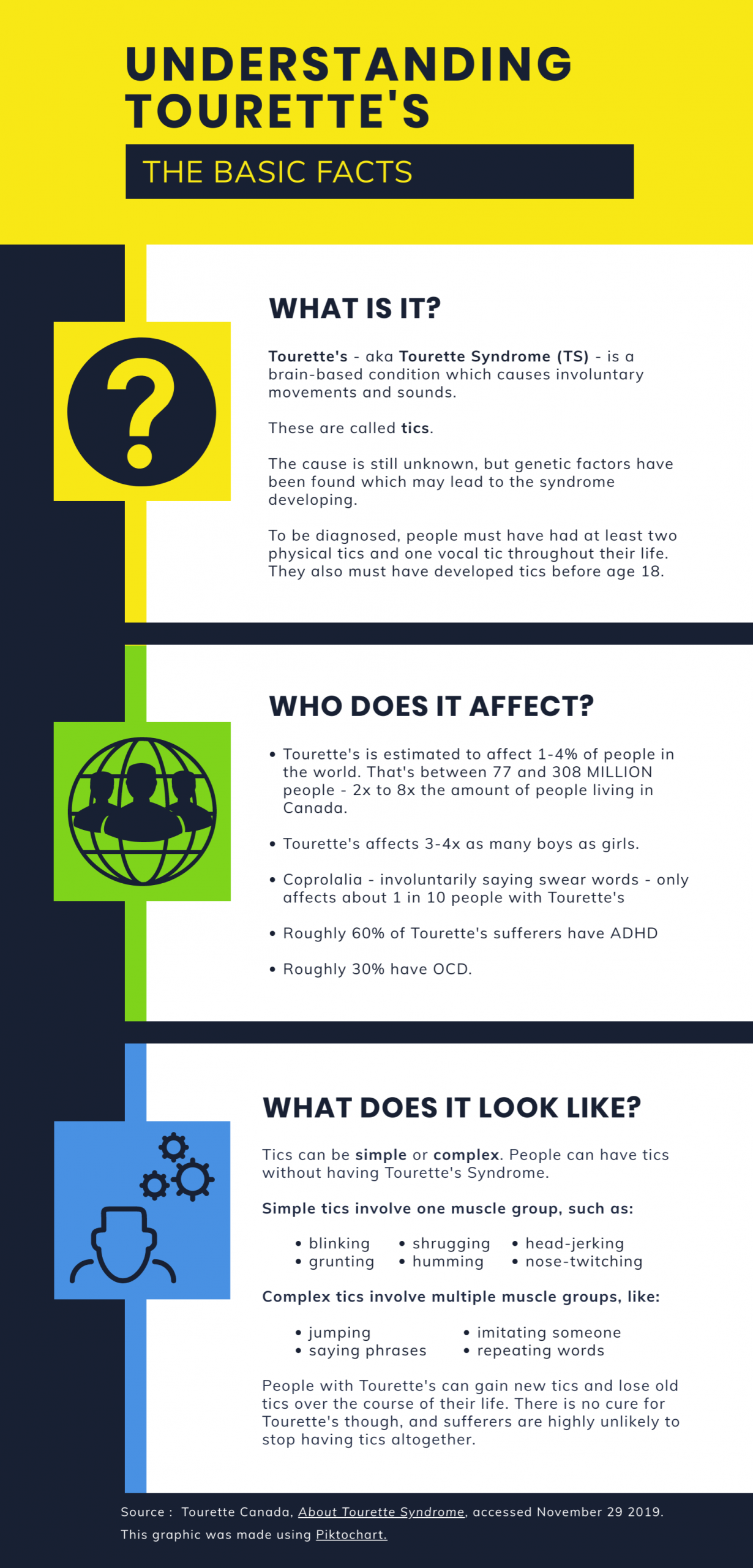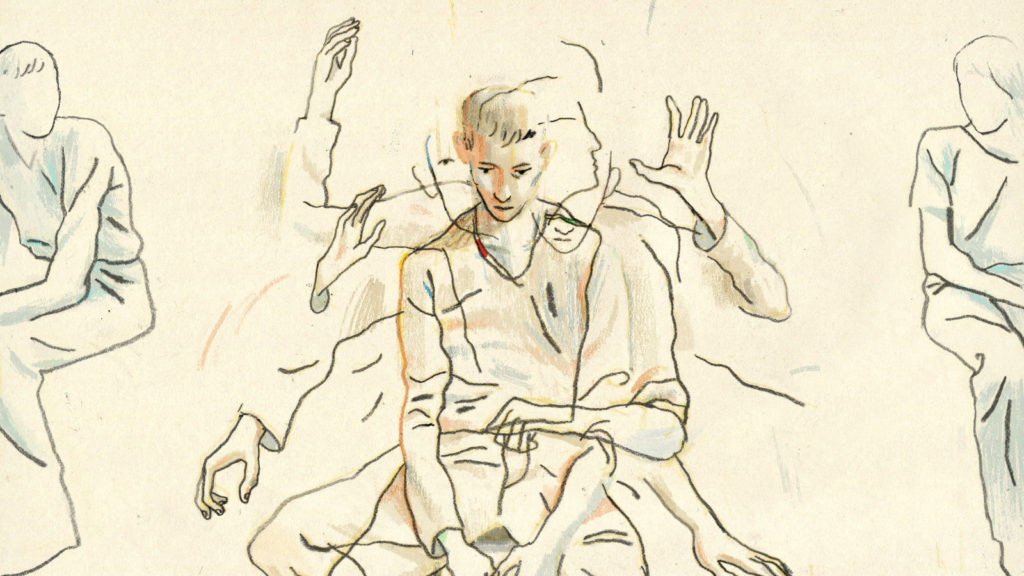Illustration by The New York Times.
You may be wondering what is Tourette Syndrome?
According to mayoclinic.org, Tourette Syndrome is a condition which causes people to display involuntary and repetitive movement or sounds, these are commonly referred to as tics.
People who have TS are unable to stop their body from having these tics.
Some symptoms of TS may include involuntary jerking of the head or limbs; blinking, eye rolling, grimacing, shoulder shrugging or touching objects and other people.
The exact cause of the syndrome isn’t currently known.
Tourette’s is a very complex disorder believed to be caused by a combination of genetic and environmental factors. However, neurotransmitters such as dopamine and serotonin, may play a role in it as well.
Symptoms of TS can begin in children as young as two to the age of 18. However any tics that develop after the 18 years old are not considered to be symptoms of TS and may be due to something else.
Typically tics will become less severe with age, however in some cases tics do become worse with age, rather than better.

So, what can cause tics?
Typically tics occur randomly, however, things such as stress, anxiety, excitement and or happiness have been known to make them occur and with more frequency.
And while TS cannot be cured, there is treatment that may help.
Some doctors recommend behavioral therapy. While not a cure, behavioral therapy can be used to teach someone with TS how to manage their tics.
Tics can either be verbal or motor.
One type of verbal tic is called Coprolalia. Coprolalia is the medical term used to describe one of the most stigmatizing type of tic, the outburst of obscene words and derogatory such as references to genitals and sexual acts.
Just like any other tic, those with TS who have Coprolalia can not control the frequency of their tics, nor can they control what word or phrase they say while experiencing tics — this tic may be a single word or a more complex phrase.
A TikToker who goes by the username Rachelchaleff has Coprolalia and has made videos on the subject of TS recently made a video answering a viewers question on whether or not she could feel her tics coming this was her response.
“Yes, sometimes. People with TS or tic disorders have something called a premonitory urge in which they sometimes have a sensation before the tic happens.”
Rachelchaleff personally compares the sensation to the feeling people sometimes get before they sneeze.
Another of Rachelchaleff’s videos discusses how having TS impacted her mental health.
She speaks about struggling with many mental illnesses such as anxiety, depression and PTSD before she was diagnosed before going on to explain that developing TS impacted her mental health negatively and essentially amplified all the issues she had already been dealing with previously.
A CDC study using parent-reported data found that 1 out of every 333 (0.3%) children 3–17 years of age in the United States have received a diagnosis of TS; About 200,000 people in the U.S. have a severe form of Tourette syndrome.
As for globally, one estimate says that about 0.6% of children, or 1 in every 162 kids, has Tourette’s. However a study conducted by the Centers for Disease Control and Prevention found that 1 in 360 kids, or about 0.3% of children, had a diagnosis of Tourette’s, meaning that only about half of children with Tourette’s are diagnosed.
“I felt like there was no one who understood what I was going through, and I felt like I was a burden. I hated myself for having TS basically. But what’s great is that I can confidently say now that I feel as though I’ve accepted what I have, my TS, and I’m ok with that.”
The video ends on a positive note as Rachelchaleff reminds her viewers that they are not less than because of any disability they may have.
“You are beautifully and uniquely you and I am beautifully and uniquely me. Learning to love yourself takes a lot of time and I’m still learning every day.”













